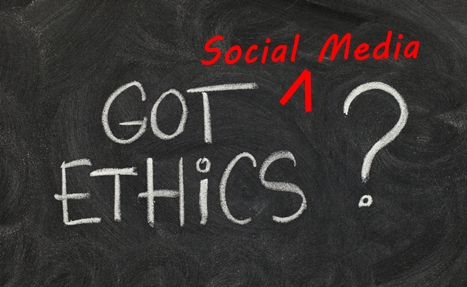28th March, 2014

The social media network as a research tool is continually morphing with time, presenting researchers chances to analyse mass public communication in the collective cyber space. We have previously looked at the networks themselves, some practical methodology and touched upon the subject of how automated spambots can affect market perception. We will now look at the role of ethics within social media research as its value to the industry evolves.
Social media research is a broad subject to define. Drawing on the collective information generated throughout the many social media networks requires dedicated research in itself and the potential offered by the data on offer can be substantial. The scope of social media research is not limited to market assessment and as such has been utilised to ascertain parent/child relationship communication methods, social media user behavioural models and the continuing issue of internet privacy that dominates our technology centric society.
The implications of social media research are substantive. We have access to the databases of millions of people whose information resides in the public domain, yet their privacy and anonymity are presented as truth. Individual network users are happy to post their opinions, link to their psychological statuses and discuss their wellbeing in the public sphere, yet informed consent remains the key to unlocking the data. The collection and collation of data appears to be unlimited for researchers where the option to trawl the social media networks to mine vast sums of information is relatively simple.
Is opening the net and scooping up data enough? Most probably not: defining the limits of acceptable use of public information is inherently difficult due to the rapidly evolving nature of social media networks. Guidance suggests researchers protect themselves from public expectations of privacy, security and anonymity by calculating the threshold for intervention between subject, researcher and potential participant. The majority of social media users understand the implications of what social media is without understanding how their data can be used despite user-agreement contracts being signed before completion of network sign up. User expectations vary greatly between age and technological awareness. Researchers must consider the range of these values within a target group of participants, or their target data model.
Social media research largely boils down to user privacy and understanding the limit of social situation boundaries. Social media research must be context aware: each network is different and must be approached with a holistic view to engage multiple sources, through multiple approaches, across multiple disciplines to ensure that network users are engaged appropriately and diversely. A poll of #NSMNSS (New Social Media, New Social Science?) members identified several areas that need considerable work (areas receiving over 60% of vote):
Those that are singled out are not exhaustive but do indicate that researchers are entirely aware that for continued use of social media networks as a viable research tool a practical framework exploring guidelines and ethics must be scheduled for the near future. Ongoing development is needed so long as social networks maintain their development pace and interactive reach. Researchers old and young must be involved in the process of evaluating the value that social network research holds for the industry and educate accordingly so that not only do researchers grasp the weight of their research actions, but that social network users can be assured that their online activities are protected.
Are social media ethics really that different from the traditional? Perhaps not entirely but whilst some suggest that separate guidelines are not needed it would assist researchers in the long term to be able to ethically contextualise their social media research findings with a dedicated set of guidelines as to remove any confusion. A dedicated social media network guideline may only need slight tweaking from the traditional but, as the technology updates, so must the guidelines follow suit.